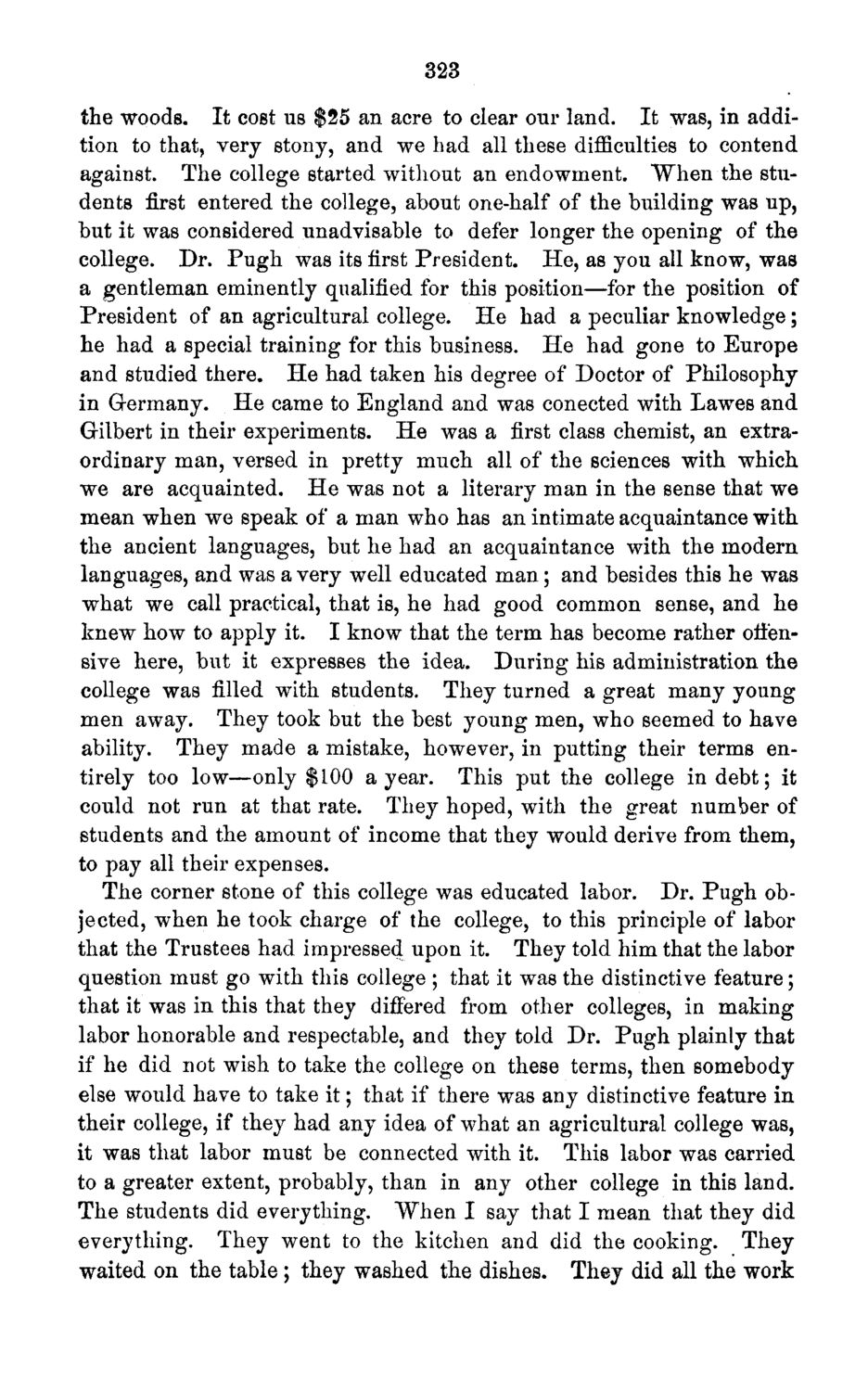| |
| |
Caption: Board of Trustees Minutes - 1871
This is a reduced-resolution page image for fast online browsing.

EXTRACTED TEXT FROM PAGE:
323 the woods. It cost us $25 an acre to clear our land. It was, in addition to that, very stony, and we had all these difficulties to contend against. The college started without an endowment. When the students first entered the college, about one-half of the building was up, but it was considered unadvisable to defer longer the opening of the college. Dr. Pugh was its first President. He, as you all know, was a gentleman eminently qualified for this position—for the position of President of an agricultural college. He had a peculiar knowledge; he had a special training for this business. He had gone to Europe and studied there. He had taken his degree of Doctor of Philosophy in Germany. He came to England and was conected with Lawes and Gilbert in their experiments. He was a first class chemist, an extraordinary man, versed in pretty much all of the sciences with which we are acquainted. He was not a literary man in the sense that we mean when we speak of a man who has an intimate acquaintance with the ancient languages, but he had an acquaintance with the modern languages, and was a very well educated man; and besides this he was what we call practical, that is, he had good common sense, and he knew how to apply it. I know that the term has become rather offensive here, but it expresses the idea. During his administration the college was filled with students. They turned a great many young men away. They took but the best young men, who seemed to have ability. They made a mistake, however, in putting their terms entirely too low—only $ L O a year. This put the college in debt; it O could not run at that rate. They hoped, with the great number of students and the amount of income that they would derive from them, to pay all their expenses. The corner stone of this college was educated labor. Dr. Pugh objected, when he took charge of the college, to this principle of labor that the Trustees had impressed upon it. They told him that the labor question must go with this college ; that it was the distinctive feature; that it was in this that they differed from other colleges, in making labor honorable and respectable, and they told Dr. Pugh plainly that if he did not wish to take the college on these terms, then somebody else would have to take i t ; that if there was any distinctive feature in their college, if they had any idea of what an agricultural college was, it was that labor must be connected with it. This labor was carried to a greater extent, probably, than in any other college in this land. The students did everything. When I say that I mean that they did everything. They went to the kitchen and did the cooking. They waited on the table ; they washed the dishes. They did all the work
| |